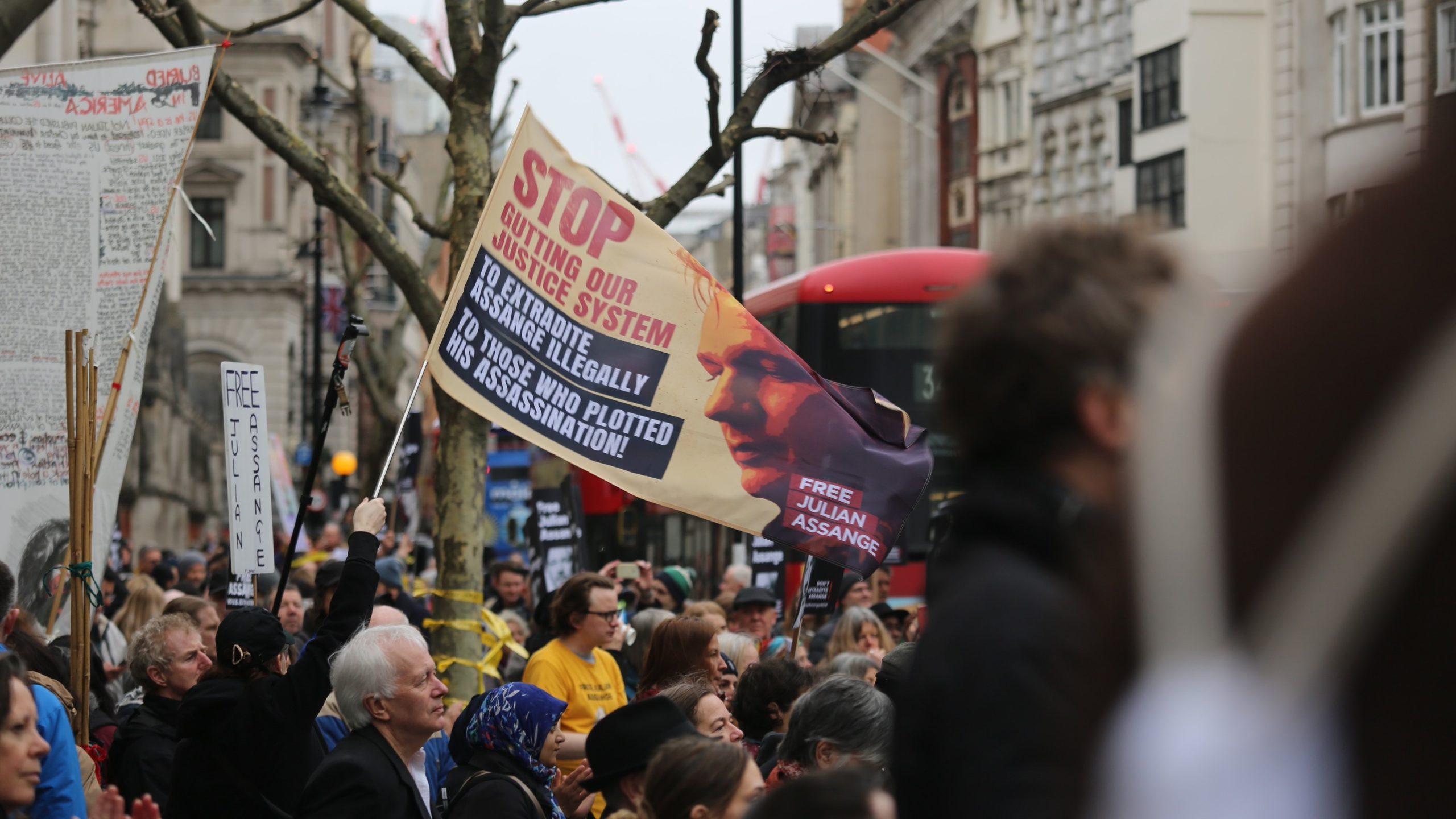On the second and final day of the crucial appeal permission hearing for Julian Assange, the US repeated long-debunked and discredited theories and allegations. On Wednesday, February 21, the court began by hearing the submission by the prosecution representing the US government.
The prosecution team led by Claire Dobbin and Joel Smith presented arguments that obfuscated facts and misrepresented both the prosecution against Assange and the nature of work done by WikiLeaks.
The US opened with unsubstantiated claims that Assange’s publishing of the classified documents exposed several contacts, putting them in harm’s way especially those in war zones and under oppressive regimes.
The US submission also claimed that WikiLeaks was the first to publish unredacted versions of the classified documents, even though WikiLeaks was the first to extensively redact names and locations while it was established media platforms like the Guardian and a prior publisher Cryptome who released the documents in a completely unredacted form.
On top of that, the submission also made claims to bolster their charges against Assange, denying both Assange and Wikileaks as journalistic while accusing “illegally procuring” information. In a bid to deny Assange the consideration of a journalist, the US submission went so far as to argue that Chelsea Manning was not considered as a whistleblower in the US.
“[Assange] solicited the bulk disclosure of classified information and was party to Ms. Manning’s theft of classified information, and then indiscriminately and knowingly published to the world who acted as sources of information to the United States,” Dobbin claimed. “It is these key facts that distinguish him from the New York Times and other media organizations; it is these facts that distinguish him.”
The US government is yet to substantiate any of their claims with clear evidence. The allegation of “illegally procuring” data stems from an alleged chat record between Manning and Nathaniel Frank (alleged to be Assange) about cracking an administrator password hash. The chat showed that neither were able to crack it.
During the extradition trial of 2020 before district judge Vanessa Baraitser, a US military forensics expert Patrick Eller had rubbished US claims that this chat indicated an attempt by Manning to hack into military computer systems to anonymously gain access to more details, much less find any proof of Assange’s involvement in it.
Additionally, the prime witness presented by the US for the expanded second indictment against Assange in 2020 had later admitted to fabricating his testimony in exchange for immunity from prosecution for various crimes.
Also Read: Julian Assange case: 4 things that the media doesn’t tell you
The prosecution also attempted to steer away the court’s attention from major concerns raised about the prosecution process by the defense. For instance, the prosecution avoided answering questions of whether Assange will be afforded First Amendment rights, by trying to argue that the US government views the “outing of intelligence sources as outside the scope of the First Amendment.”
This specifically overlooks the fact that Assange being a foreign citizen and based outside the US will not be afforded the First Amendment rights. It also tries to narrowly define the ongoing prosecution in the US as more or less concerned with the publishing of names when only three of the 18 charges are concerned with it, while the rest are concerned with charges of acquiring and publishing the classified documents by itself.
The prosecution did not respond positively to judge Jeremy Johnson’s question of whether the First Amendment rights will be considered in Assange’s case. The prosecution also denied that there can be any assurances against the death penalty against Assange, which is a key exception to extradition in the US-UK extradition treaty; a very crucial concern raised by Assange’s defense yesterday.
Instead, the prosecution was only able to submit that: “The evidence is that the applicant will be entitled to a fair and public hearing, within a reasonable time, before an independent and impartial tribunal.” A very generic assurance without any substance or concrete promises.
Media access continues to be interrupted
Media access remained limited on the second and final day of the crucial trial, with technical glitches causing major interruptions.
In a report for The Dissenter, Kevin Gosztola wrote about these, especially for those who were attending the proceedings remotely or were pushed into the media center with substantially slower internet and bad audio quality.
“It’s outrageous that the High Court is trying to silence the press’s coverage of a case that threatens to silence the press for good. Courts need to be open to the press and public if they expect their rulings to be respected by the public,” Freedom of the Press Foundation advocacy director Seth Stern told The Dissenter.
“Instead the High Court appears to be doing everything possible to evade transparency and complicate the jobs of journalists and observers.”
On the first day, when defense lawyers presented their grounds for appeal, Italian journalist Stefania Maurizi shared, “We are sitting in a Victorian gallery with no tables to take notes or use computers. We cannot hear or watch the hearing properly at all. We don’t understand what is going on in the court.”
Assange has remained imprisoned without charges since April 2019 in a high-security prison in Belmarsh on the outskirts of London, at the behest of the extradition request by the US.
His extradition was initially rejected by a district judge in London in January 2021 on grounds of Assange’s mental health and the risk of suicide and other bodily harm if he was extradited.
This decision was overturned by the High Court in London in December that year based on diplomatic assurances given by the US after the district court’s decision. In June 2022, the UK Home Office sanctioned the extradition based on the High Court’s decision.





